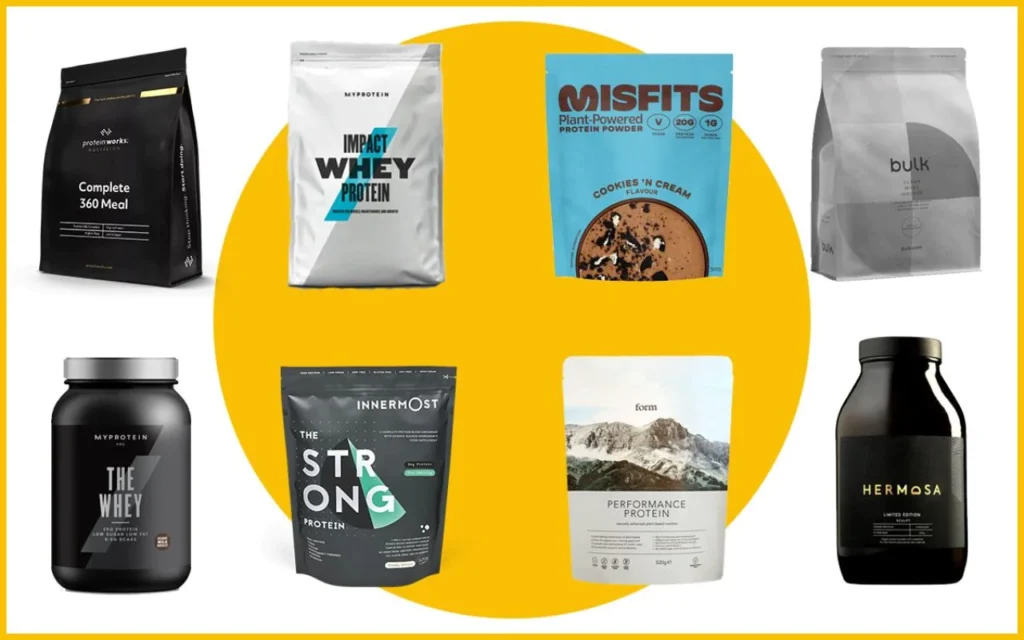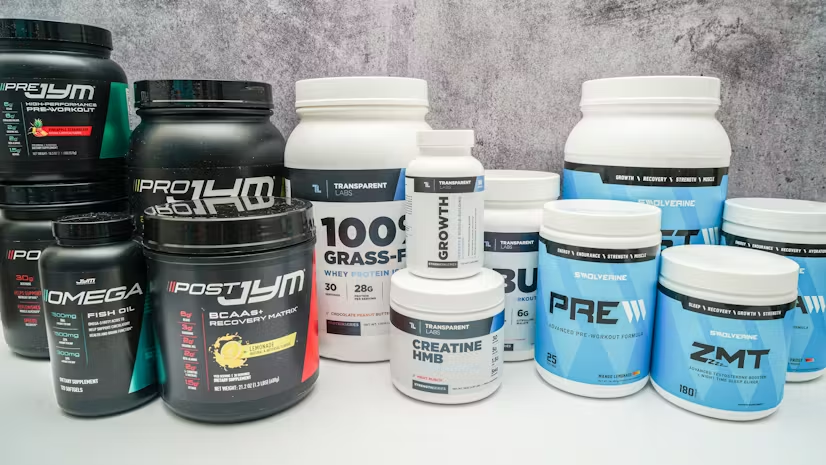Top Supplements to Accelerate Muscle Building
Introduction

In the quest for muscle growth, the supplement industry often promises transformative results with minimal effort. However, while supplements can provide significant benefits, they should complement, not replace, a well-structured diet and exercise regimen.
This article delves into eight key supplements that can aid in muscle development, based on current evidence and scientific research.
Carnosine: Combatting Muscle Fatigue
Carnosine, a dipeptide composed of beta-alanine and histidine, plays a crucial role in reducing muscle fatigue.
By buffering lactic acid, carnosine helps delay the onset of fatigue during intense exercise, allowing for more reps and progressive overload—a fundamental principle in muscle growth.
Additionally, carnosine’s antioxidant properties protect muscle cells from oxidative stress and assist in regulating calcium levels crucial for muscle contractions.
Pre-Workout Supplements: Enhancing Energy and Focus
Pre-workout supplements, commonly containing stimulants like caffeine and nitric oxide boosters such as L-citrulline and L-arginine, can significantly enhance workout performance.
These ingredients increase energy, focus, and blood flow, leading to improved exercise intensity and muscle “pump.” However, reliance on these supplements should be moderated to avoid tolerance and diminishing returns.
Creatine: Proven Muscle Builder
Creatine is one of the most well-researched supplements for muscle growth. It boosts phosphocreatine stores, aiding in short bursts of high-intensity activity.
This results in increased strength, enhanced performance, and greater muscle stimulation. Creatine also promotes cellular hydration and reduces myostatin levels, further contributing to muscle growth and recovery.
Whey Protein: A Cornerstone of Muscle Nutrition
Whey protein is highly valued for its rapid digestion and high biological value.
Rich in essential amino acids and leucine, whey protein supports muscle protein synthesis and recovery post-exercise.
Combining whey protein with carbohydrates can further enhance the anabolic response, optimizing nutrient delivery to muscle cells.
Homemade Weight Gainer Shakes: Addressing Caloric Needs
For individuals struggling to consume sufficient calories, homemade weight gainer shakes offer a practical solution.
By blending whey protein with calorie-dense ingredients like oats, bananas, and peanut butter, these shakes provide a substantial caloric boost necessary for muscle growth and recovery.
Vitamin D: Enhancing Muscle Strength
Vitamin D plays a critical role in muscle function, particularly in regions with limited sun exposure. Research indicates that adequate vitamin D levels are associated with improved muscle strength and performance.
It also supports protein synthesis and enhances the proportion of type II muscle fibers, which are crucial for strength and size.
Omega-3 Fatty Acids: Supporting Recovery and Performance
Omega-3 fatty acids, found in fish oil and krill oil, offer indirect benefits for muscle growth through their anti-inflammatory effects.
They enhance muscle protein synthesis, reduce muscle protein breakdown, and improve neuromuscular function, contributing to better recovery and performance.
HMB: A Controversial Supplement
HMB (β-Hydroxy β-Methylbutyrate) is a supplement with mixed results. While some studies suggest it can increase muscle protein content and reduce muscle damage, its effectiveness is less clear, particularly for experienced athletes.
Its benefits may be more pronounced for beginners or those undergoing significant physical stress.
Supplements to Approach with Caution
Certain supplements, such as testosterone boosters, branched-chain amino acids (BCAAs), glutamine, and DHEA, lack substantial scientific support for their efficacy in muscle building.
Over-the-counter testosterone boosters often fail to produce significant physiological changes, while BCAAs and glutamine are unnecessary if protein intake is adequate.
DHEA, marketed for anti-aging and muscle building, carries potential risks including hormonal imbalances and liver stress.
Conclusion
While supplements can enhance muscle growth and recovery, they are not a substitute for a solid diet and exercise plan.
Understanding the evidence behind each supplement helps make informed choices that can complement and optimize your muscle-building efforts.
For a holistic approach, consider integrating these supplements into a well-rounded regimen tailored to your individual needs.






